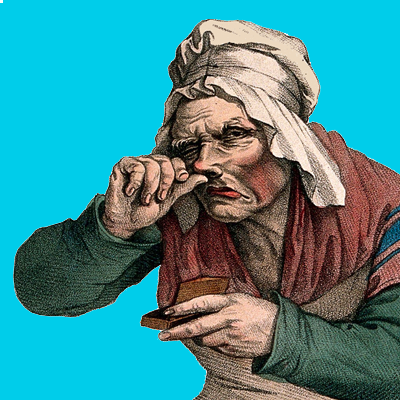The programme for S3 of our online seminar series What’s Your Poison? is now live! Five free talks showcasing new work on spices, coffee, cocaine, opium, and rum, and all are welcome. We start next Wed (29 Sep); find out more and register here: https://t.co/qAkDuFIXBA 🌶☕️💊🌿🥃
Eighteenth-century al fresco drinkers at the pleasingly named Queen’s Head and Artichoke, a popular inn and tea garden in Marylebone on the site of the present-day Regent’s Park. ☕️
Our seminars are always at their best live, but in case you missed them, four fantastic talks on cannabis, rum, sugar, and opium are available via our website: https://t.co/yGQHFyDbLE
New on the blog; in a Halloween special, @dr_jrbrown from our UK research team explores the relationship between intoxicants and ghosts: https://t.co/myU61iBTVb 🍷👻🥃🎃
Illness manifests as monsters in this 1788 etching by Thomas Rowlandson; ague (the chills) is an eel-like specimen with long bony fingers, while fever is a furry creature with red eyes. 🦠 #FolkloreThursday
We’re excited to share the programme for our online seminar series: What’s Your Poison? Five free talks showcasing new work on cannabis, rum, tea, sugar, and opium, and everybody is welcome! We start next Wed (14 Oct); find out more and register here: https://t.co/yGQHFyDbLE
Some C18th etchings of English pub-goers being menaced by skeletons. 💀🍻
The papaver somniferum, or opium poppy. Famous for the psychoactive compounds found in its seed pods, it has long been associated with the untethered imagination, with sleep and prophetic dreaming, with journeys to other worlds, and with death. #FolkloreThursday
In the early modern period, cacao, coffee, tobacco, and sugar were overwhelmingly grown by enslaved Africans on colonial plantations; their popularity in Europe thus drove the brutalisation of Black bodies within the English, Dutch, French, and Iberian empires. (1/12)
Women trying to smoke in peace in seventeenth-century Dutch art (all via @rijksmuseum). 🚬


















